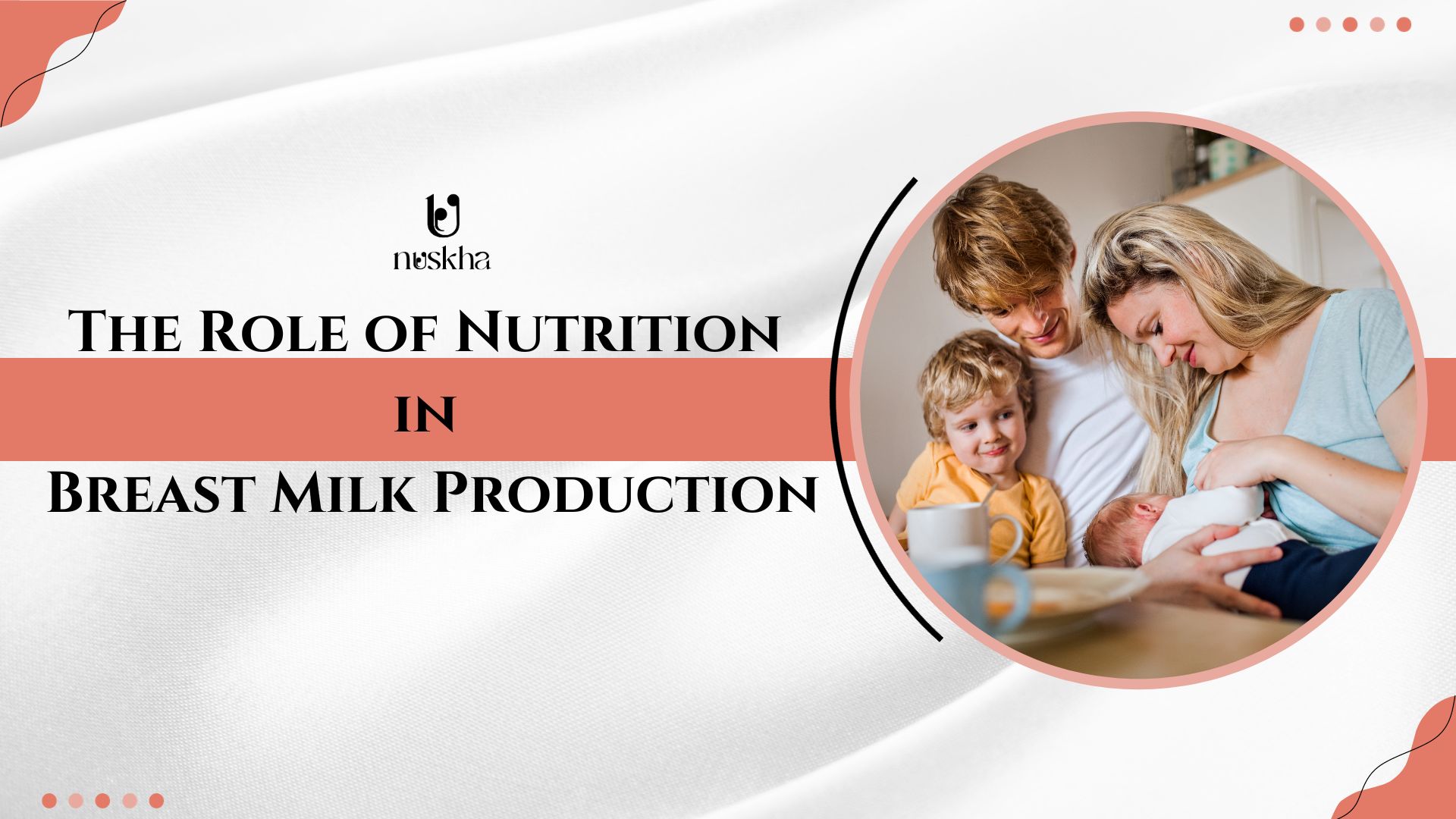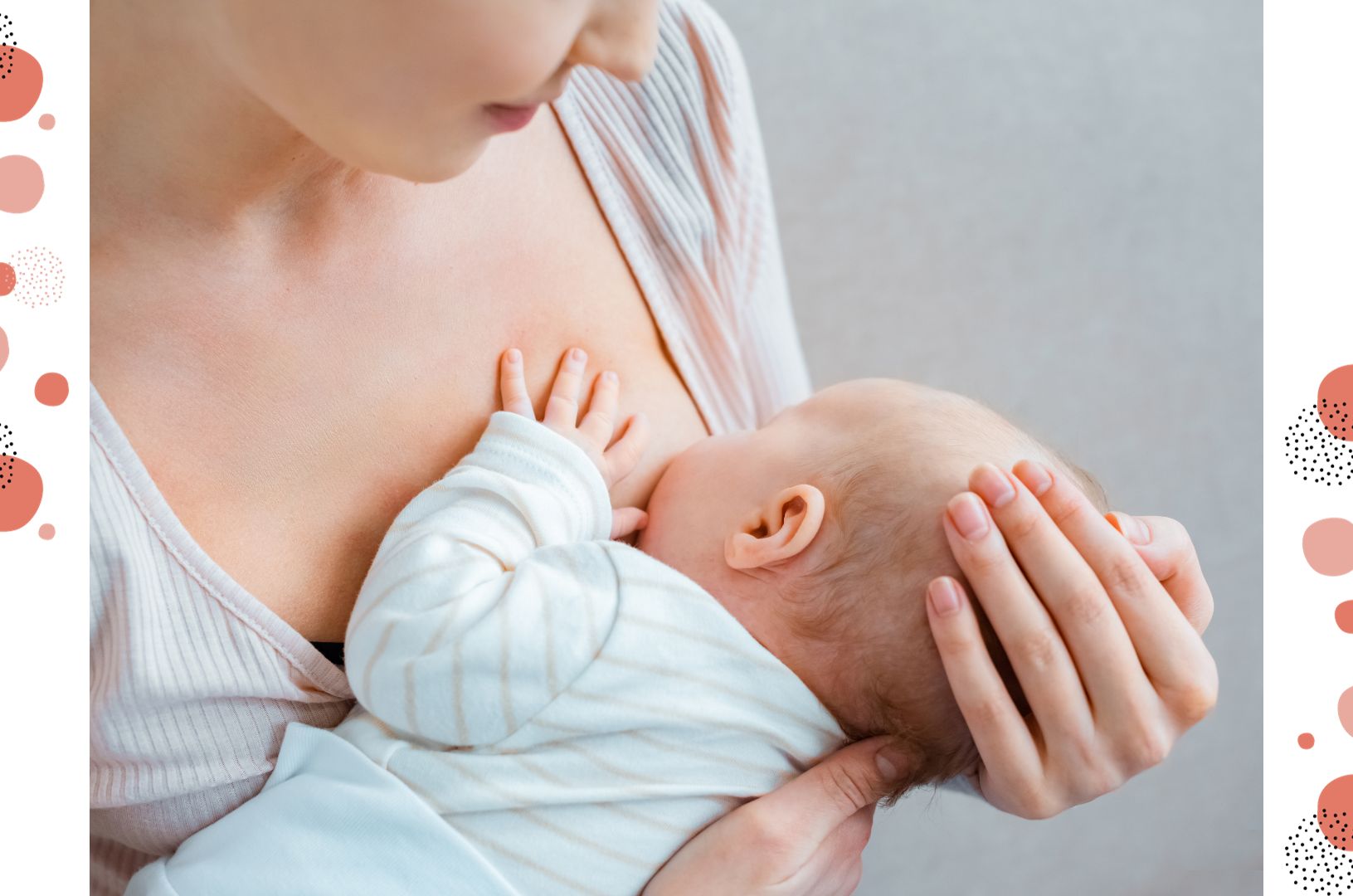
Breast milk is often called "liquid gold" because of its incredible benefits for babies. But have you ever wondered how your body makes this magical elixir? Well, it's all about nutrition! In this article, we'll dive into the user-friendly science of how your diet plays a crucial role in producing breast milk.

Imagine your body as a high-tech milk factory. When you become a mom, this factory goes into full production mode to create the perfect food for your baby. But it needs raw materials to do this job effectively, and that's where your diet comes in.

Producing breast milk burns extra calories, so it's important to eat a bit more than you did before. Don't worry about counting calories, though. Just listen to your body. When you're hungry, eat.

Protein is like the construction crew in your milk factory. It helps build and repair tissues, including the cells that make breast milk. Good sources of protein include lean meats, fish, eggs, dairy products, and plant-based options like beans and tofu.

Fats are like the energy source for your milk factory. They contain essential fatty acids that are crucial for your baby's growth, especially brain development. You can find healthy fats in avocados, nuts, seeds, and olive oil.

Carbs are like the quick-burning fuel that keeps your milk factory running smoothly. Whole grains like oats, brown rice, and whole wheat bread are excellent carbohydrate choices.

Water is the secret ingredient for milk production. It's like the lubrication that keeps the machinery running. Staying hydrated is crucial, so drink plenty of fluids throughout the day.

Your body needs various vitamins and minerals to produce quality breast milk. Let's take a closer look:
Calcium is essential for your baby's bone development. Good sources of calcium include dairy products, fortified plant-based milk, and leafy greens like kale.
Iron is necessary to prevent anemia and provide your baby with sufficient oxygen. You can get iron from lean meats, beans, and fortified cereals.
Vitamin D helps your body absorb calcium. While you can get some from sunlight, your doctor might recommend a vitamin D supplement.
Folate, a B-vitamin, is essential for cell division and growth. You can find it in leafy greens, citrus fruits, and fortified grains.

Here's the incredible part: your breast milk changes based on what you eat! It's like having a personalized meal plan for your baby. Here's how it works:
If you eat garlic, your milk might have a hint of garlic flavor. The same goes for other foods you eat. But guess what? Babies love tasting different flavors, so don't worry about it.
Yes, if you enjoy spicy foods, some of those flavors can come through in your milk. Your baby may be perfectly fine with this!
Some foods are believed to help boost milk supply for some moms. Oatmeal and fenugreek are examples. They're like little helpers in your milk factory.

Eating a variety of foods is essential. The more diverse your diet, the more varied and nutritious your breast milk will be. It's like giving your baby a buffet of nutrients!

When you're breastfeeding, you might notice that you're often hungry and thirsty. That's your body's way of telling you it needs more fuel to make milk. So, don't hesitate to snack on healthy foods like fruits, nuts, or yogurt between meals.
In a nutshell, nutrition is like the superhero behind the scenes, helping your body create the superhero of baby food: breast milk. So, eat well, stay hydrated, and enjoy this incredible journey of nourishing your little one with the best food nature can provide! Remember, you're not just feeding your baby; you're giving them a gift that sets them on a path to a healthy start in life.